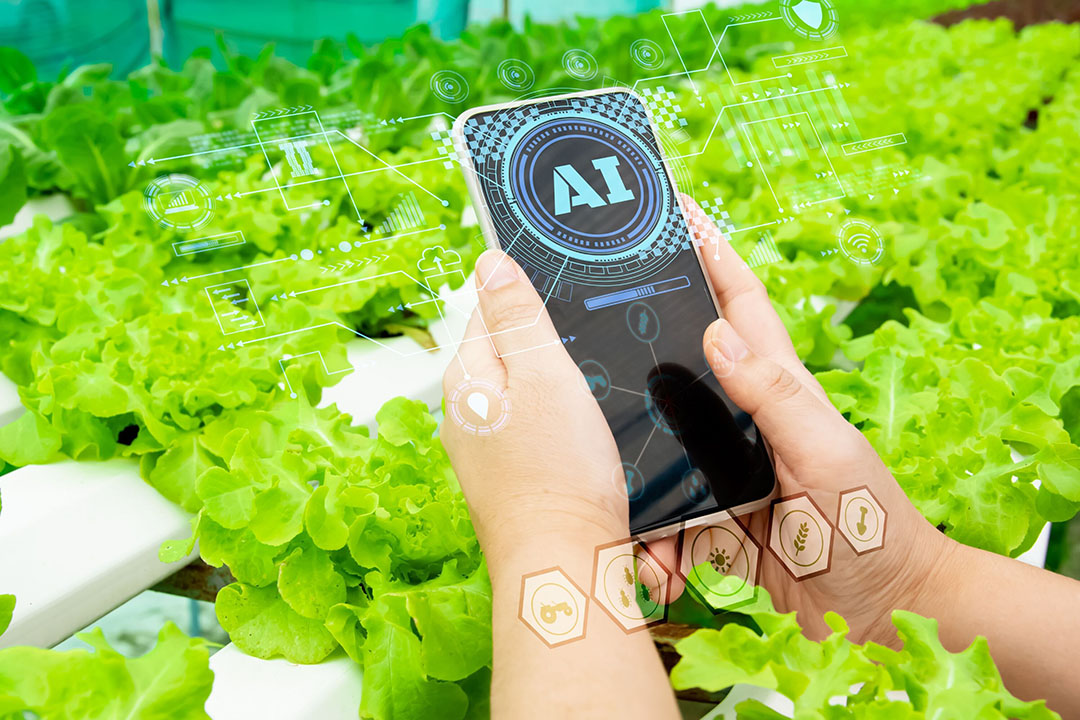
Transforming Agriculture: The Pinnacle of AI Integration
In the vast fields of agriculture, a groundbreaking evolution is underway as Artificial Intelligence (AI) takes center stage. This article delves into the transformative impact of AI in agriculture, exploring how cutting-edge technologies are revolutionizing farming practices, improving efficiency, and ensuring sustainable agricultural practices.
Precision Farming: Navigating Fields with Data Precision
At the forefront of AI in agriculture is precision farming, a paradigm shift from traditional farming methods. AI-powered systems analyze data from various sources such as satellites, sensors, and drones to provide farmers with real-time insights. This data-driven precision enables optimized decision-making regarding crop management, irrigation, and resource allocation.
Crop Monitoring and Management: Eyes in the Sky and Beyond
AI in agriculture introduces an aerial dimension to crop monitoring. Drones equipped with advanced sensors and cameras fly over fields, capturing high-resolution images. AI algorithms then analyze these images to detect crop health indicators, identify diseases, and assess overall plant conditions. This technology facilitates early intervention, reducing crop losses and improving yields.
Predictive Analytics: Anticipating the Unpredictable
One of the game-changing aspects of AI in agriculture is its ability to predict outcomes. Using historical data, weather patterns, and other relevant factors, AI algorithms generate predictive models. These models help farmers anticipate crop yields, plan harvest schedules, and navigate the uncertainties of agricultural production with greater confidence.
Smart Irrigation: Watering with Precision
In regions where water is a scarce resource, AI brings a transformative solution through smart irrigation. By analyzing soil moisture levels, weather forecasts, and crop requirements, AI systems optimize irrigation schedules. This ensures that crops receive the right amount of water at the right time, minimizing water wastage and promoting sustainable water management.
Weed and Pest Control: Targeted Intervention
AI technologies contribute to more efficient and eco-friendly weed and pest control. Machine learning algorithms can distinguish between crops and unwanted plants, enabling precision spraying of herbicides. Similarly, AI aids in identifying and managing pest infestations through the analysis of data, reducing the reliance on chemical interventions and promoting environmentally friendly practices.
Autonomous Farming Machinery: Robots Tending the Fields
In the era of AI in agriculture, autonomous farming machinery takes center stage. AI-powered tractors, harvesters, and drones can perform tasks without direct human intervention. These machines leverage AI algorithms to navigate fields, plant seeds, and harvest crops with precision. The result is increased efficiency, reduced labor requirements, and optimized use of resources.
Challenges and Adoption Hurdles: The Road to Agricultural AI
While the promise of AI in agriculture is immense, there are challenges to widespread adoption. High upfront costs, the need for infrastructure, and the necessity for digital literacy among farmers are barriers that need to be addressed. Additionally, ensuring data privacy and security is crucial as farms become more connected and data-driven.
AI in Agriculture: A Sustainable Future
The integration of AI in agriculture aligns with the pursuit of sustainable farming practices. By optimizing resource use, minimizing environmental impact, and enhancing overall efficiency, AI contributes to the creation of a more sustainable and resilient agricultural sector. This harmonious coexistence of technology and agriculture is crucial for meeting the global demand for food in the coming years.
Explore the Agricultural Revolution: AI in Agriculture at www.misuperweb.net
To delve deeper into the Agricultural Revolution powered by AI, visit AI in Agriculture. The website offers insights, case studies, and updates on the latest advancements in agricultural technology. Explore how AI is reshaping the future of farming and contributing to a more sustainable and productive agricultural landscape.
Conclusion: Cultivating Tomorrow with AI in Agriculture
In conclusion, AI in agriculture represents a transformative force that is reshaping the landscape of farming practices. From precision farming to autonomous machinery, the integration of AI brings unprecedented efficiency, sustainability, and innovation to agriculture. As technology continues to advance, the collaborative synergy between AI and agriculture promises a future where farms are not only fields of crops but also hubs of technological prowess, ensuring food security for generations to come.
